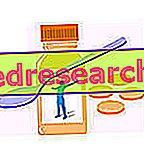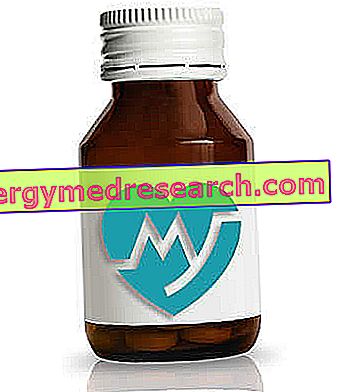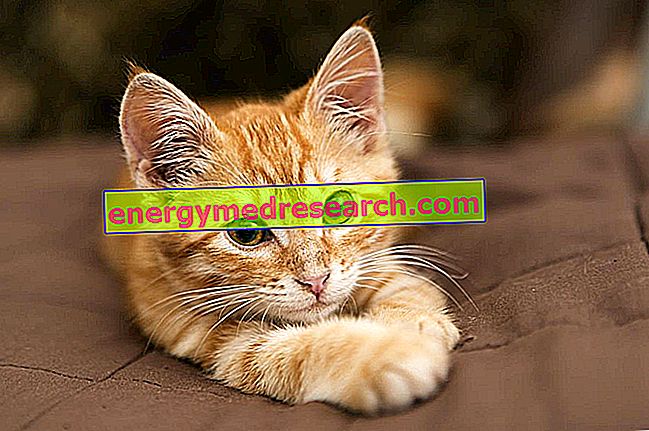LOBIVON ® is a nebivolol based drug
THERAPEUTIC GROUP: Beta-blockers
IndicationsAction mechanismStudies and clinical effectiveness Usage and dosage instructionsWarnings Pregnancy and lactationInteractionsContraindicationsUndesirable effects
Indications LOBIVON ® Nebivololo
LOBIVON ® is used in the treatment of essential hypertension and mild, moderate and stable heart failure.
Mechanism of action LOBIVON ® Nebivololo
Nebivolol, taken by LOBIVON ®, is absorbed in the gastro-intestinal tract and readily metabolized in the liver by cytochromial enzymes. The metabolic processes that this active ingredient faces depend on the enzyme CYP2D6, whose activity is strictly influenced by gene variants of the same protein. For this reason, bioavailability, time to reach the maximum plasma concentration and half-life will vary between slow and rapid metabolisers, although the "rapid" polymorphism seems to be the most frequent in the population.
Nebivolol is a cardioselective beta-blocker of the latest generation, which associates to the classical mechanism of selective inhibition of beta 1 adrenergic receptors expressed at cardiac level, an evident vasodilatory action, determined by the induction of the arginine-nitric oxide pathway, with increased concentrations of the latter molecule at the level of the arteriolar intimate habit.
The reduction in the frequency and intensity of myocardial contraction, improved coronary perfusion, reduced cardiac action and the innovative vasodilatory action make nebivolol one of the most effective beta-blockers in antihypertensive therapy.
The metabolites of nebivolol, both hydroxylated and glucuronated, are eliminated in more or less similar parts through urine and faeces.
Studies carried out and clinical efficacy
NEBIVOLOLO, BETA-BLOCKER OF NEW GENERATION
Nebivolol is one of the new generation beta blockers, as it associates an important vasodilatory action with the inhibitory effect on cardiac adrenergic receptors Beta. The study of the molecular mechanisms of vasodilation, which make this active ingredient one of the most effective beta blockers in the treatment of high blood pressure, has shown an activation of Beta 1 receptors of vascular smooth muscle and an increase in the activity of nitric oxide synthase with a consequent increase in nitric oxide concentrations.
2. THE ANTIPERTENSIVE EFFECTIVENESS OF NEBIVOLOL
The study in question tests the efficacy of nebivolol in the treatment of hypertension in about 300 patients. The obtained data show a reduction of the diastolic pressure of about 11mmHg and of the systolic pressure of 14mmHg, in patients suffering from hypertension of grade I and II, treated for 8 weeks with nebivolol.
3.NEBIVOLOL: PROTECTIVE EFFECT
Very interesting study conducted on obese patients subjected to intense physical exercise, useful for observing the protective effects of nebivolol on patient health. More precisely, the administration of this active ingredient for 8 weeks, at therapeutic doses, guaranteed a reduction of pro-inflammatory cytokines and leptin, and an increase in adiponectin, exerting a protective effect against inflammatory stress induced by exercise intense physical.
Method of use and dosage
LOBIVON ® 5mg tablets of nebivolol in a racemic form: the standard dosage for the treatment of hypertension is one tablet a day, preferably taken at the same time. For elderly patients or those with reduced kidney function the starting dose should be halved. The therapeutic effect appears after 1-2 weeks from the beginning of the treatment, while the maximum effectiveness is observed only after 4 weeks.
For the treatment of chronic heart failure, it is not possible to define an optimal dosage a priori, as strict medical supervision is necessary, useful for defining the effective therapeutic dose based on the physio-pathological characteristics of the patient.
IN ANY CASE, BEFORE TAKING LOBIVON ® Nebivololo - THE REQUIREMENT AND CHECK OF YOUR DOCTOR IS NECESSARY.
Warnings LOBIVON ® Nebivololo
The use of LOBIVON ® must be preceded by careful anamnestic and clinical evaluations, in order to avoid the onset of unpleasant side effects.
In detail, the bradycardic action of nebivolol could be accentuated by the concomitant administration of drugs active on the cardiovascular system or anesthetics, so as to require the suspension of therapy; it could also mask some important signs, such as tachycardia in pathologies of endocrine interest such as diabetes and hyperthyroidism.
Moreover, even considering this active ingredient a cardioselective beta-blocker, at high concentrations it could interact with the adrenergic receptors of the respiratory tract, inducing bronchial constriction and aggravating the symptomatology in patients with bronchopathy.
Particular attention should also be paid to patients suffering from particular or inadequately treated heart disease (first degree heart block, peripheral circulatory pathologies, Prinzmetal angina).
Nebivolol appears to increase sensitivity to allergens, worsening the symptoms in predisposed patients.
Should suspension of therapy be necessary, this should be carried out gradually, especially in patients with various types of heart disease.
LOBIVON ® contains lactose, therefore it is not recommended for patients with glucose / galactose malabsorption or with lactase enzyme deficiency.
PREGNANCY AND BREASTFEEDING
The hemodynamic effects induced by LOBIVON ® in particular the reduced placental perfusion, could compromise the normal embryonic and fetal development, and determine clinically relevant metabolic decompensations; for these reasons we do not recommend taking LOBIVON ® during pregnancy.
The same indication also applies to the breastfeeding period, given the presence of nebivolol in breast milk at significant concentrations.
Interactions
The common interactions observed for the cardioselective beta-blocker category - such as class II and III antiarrhythmics, verapamil / diltiazem-type calcium antagonists, centrally acting antihypertensives, halogenated anesthetics-volatiles, digitalis glycosides, antipsychotics and antidepressants, able to determine a increase of the biological effects of the drug - others are added, important in the variation of the pharmacokinetic properties of nebivolol. In particular, given the role of the hepatic enzyme CYP2D6, its inhibitors such as paroxetine, fluoxetine, thioridazine and quinidine could increase the plasma levels of nebivolol resulting in a greater risk of side effects.
Contraindications LOBIVON ® Nebivololo
Like other beta-blockers, LOBIVON ® is contraindicated in case of hypersensitivity to one of its components, in the case of hypotension, circulatory disorders, metabolic acidosis, inadequately treated pheochromocytoma, inadequately treated heart block or heart failure, cardiogenic shock and liver failure.
Undesirable effects - Side effects
The most common side effects of LOBIVON ® include headache, dizziness, paresthesia, dyspnoea, constipation, nausea, diarrhea, fatigue and edema.
More rare, and observed especially in particular categories of patients at risk, were side effects such as nightmares, visual changes, bradycardia, heart failure, slow AV conduction / AV block, hypotension, bronchospasm, dyspepsia, flatulence, vomiting, pruritus, rash skin, impotence and depression.
The literature also describes some episodes of hallucinations, psychoses, confusion, cold / cyanotic extremities, Raynaud's phenomena, dry eyes and oculo-muco-cutaneous toxicity, associated with nebivolol therapy.
Note
LOBIVON ® is salable only under medical prescription.
the use of LOBIVON ® of sportsmen, in the absence of therapeutic necessity, to reduce the physiological response to stress and the related symptoms (tremor of the limbs, increase in blood pressure, increase in emotional tension etc.) is a DOPANT practice.



